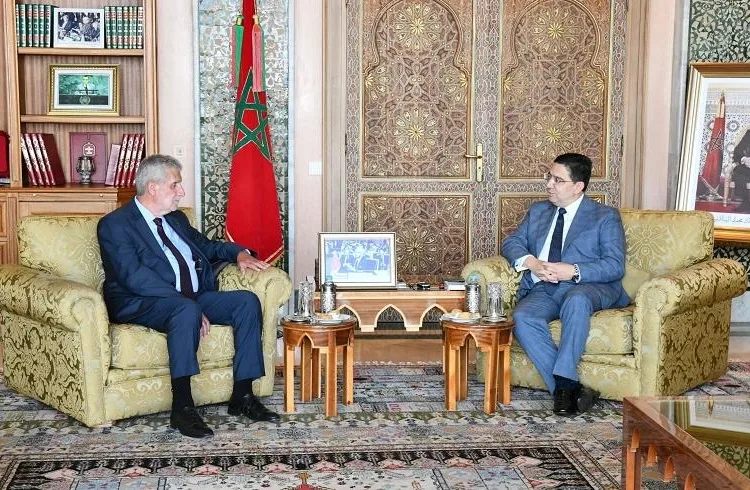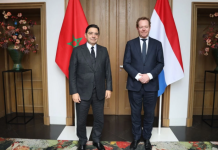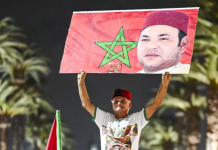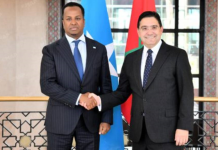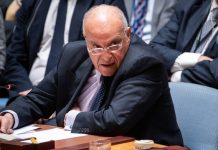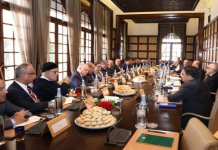Christian Cambon, who chairs the France-Morocco friendship group in the Senate, arrived with a large and diverse delegation representing various political affiliations.
RABAT – French Senator Christian Cambon reaffirmed his country’s firm support for Morocco’s sovereignty over its southern provinces during a meeting on Thursday in Rabat with Moroccan Foreign Minister Nasser Bourita. The visit marked a continuation of high-level exchanges between the two nations, following French President Emmanuel Macron’s state visit to Morocco in October 2024.
Cambon, who heads the France-Morocco friendship group in the Senate, led a delegation described as “important” and “diverse,” with members from different political backgrounds.
He stressed the “longstanding” and “fruitful” dialogue between the two countries, noting the group’s “unwavering support” for Morocco’s position on the Western Sahara dispute.
“The 2024–2025 period was marked by many positive developments,” Cambon said after the meeting. He pointed to Macron’s visit as a milestone where France declared its support for Morocco’s territorial integrity.
Cambon said the delegation’s visit aimed to contribute to writing “a new chapter” in Moroccan-French relations, as envisioned by King Mohammed VI and President Macron.
He also called for the reactivation of the Morocco-France interparliamentary forum, last held in Paris in December 2019, to boost bilateral cooperation on legislative affairs.
The French lawmaker cited several areas of joint interest, including the expansion of Morocco’s high-speed rail line, the construction of Africa’s largest seawater desalination plant near Rabat, and the agreement between Royal Air Maroc and Airbus to expand the national airline’s fleet.
On renewable energy, Cambon framed Morocco’s experience and model as “inspiring,” saying both countries can cooperate on shaping a joint vision for Africa’s energy future.
His statements come just months after a high-profile visit by French Senate President Gérard Larcher, who in February became one of the highest-ranking French officials to visit Laayoune.
Speaking after a morning meeting with Bourita in Rabat, Larcher said Paris’ position on the Sahara is “non-discutable” and made clear that the French-Moroccan relationship is built on “a deep history and friendship.”
Later that evening in the southern Moroccan city, he labeled Morocco’s southern provinces as “a success model for the entire Sahelo-Saharan zone.”
He credited the French Senate with pushing for clarity on the issue since 2007 and asserted that support for Morocco’s autonomy plan is now “acquired.”
For him, France’s new perspective on the Western Sahara dispute and the evolution of the French position is “an obvious fact, a primary truth.” “This obvious fact has undergone a long maturation process,” he said. “France’s support is not the result of a governmental policy—it is the position of all institutions of the Republic.”
He described Morocco’s development efforts in Laâyoune as remarkable, pointing to infrastructure, social investments, and sustainable development projects. He also expressed France’s willingness to share its experience in decentralization and strengthen cooperation at the local level.
Algeria reacted with anger to Larcher’s visit. Days after his trip, Algeria’s Council of the Nation, the country’s upper house of parliament, announced it was suspending ties with the French Senate.
The Algerian government had already condemned France’s July 2024 recognition of Moroccan sovereignty and recalled its ambassador in protest.
Algeria also criticized the February visit by French Culture Minister Rachida Dati to Laayoune and Dakhla—another first for a high-level French government official.
BY: The Times Union



